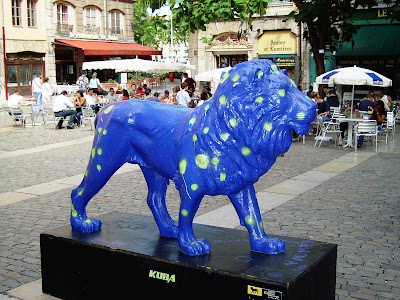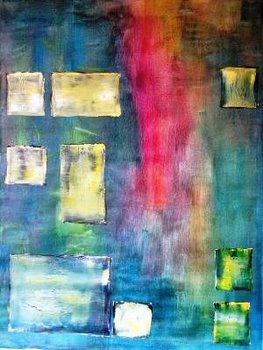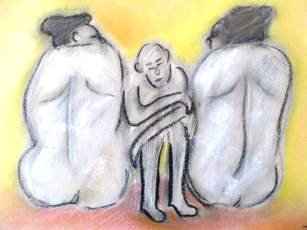Incredible Stories Behind The Fiction
I've always had a real fascination for the extraordinary stories that exist in the real lives of novelists, tales that could never be matched in their own work. Someone recently asked me for an example of this and I was surprised that he hadn't heard about the incredible past of the British murder/mystery writer Anne Perry. 
She must have thought her world as a best-selling crime novelist was going to crumble around her in 1994 when she got a call from her baffled agent. A New Zealand journalist had rung to allege that Perry was in fact a certain Juliet Hulme, a 15-year-old schoolgirl who'd been convicted of helping her best friend, 16-year-old Pauline Parker, bludgeon her mother to death with a brick in New Zealand in 1954. Of course, Perry couldn't deny the claims that her agent had initially shrugged off as crazy. The long-held secret was out.
An entry from Pauline's diary titled "The day of the happy event" was produced during the murder trial. The pair had taken Mrs Parker for a walk in a park and then hit her on the head with a brick wrapped inside a stocking. A jury heard how it took 45 blows from both girls to finally kill the woman. The jury rejected a plea of not guilty by reason of insanity and the two were convicted of murder. As they were both under the age of 18 they escaped the death penalty, which was in force at that time. After serving five and a half years in prison in New Zealand, Hulme was given a new identity and ended up living in Scotland. Parker was also given a new name and moved to England. Here's a photo of Hulme back in the 50s:
The revelation about her past came in the same year that a film about the murder was released. Peter Jackson's movie Heavenly Creatures, which starred Kate Winslet, was an international success. It hinted at the commonly held belief that the two girls had committed the murder because of family attempts to break up their supposed lesbian relationship. The prosecution painted the pair as lesbians and told the jury they were "dirty-minded little girls". The jury was told how the two were obssessed with each other, often slept in each others beds and had wild "fantasies" of becoming famous novelists. They had begun trying to raise funds to head overseas to seek their fame and fortune. Pauline feared that her mother would stop her leaving New Zealand with Juliet, whose parents were in the process of divorcing. Juliet was supposed to emigrate to South Africa.
It's strange, isn't it, that Hulme did go on to find that fame and fortune, selling millions of books around the world! Pauline Parker went on to become a devout Catholic and settled in an English village. She first worked as a school director and then as an instructor at a riding school. Perry says she has never had contact with Parker since the trial, which was one of the conditions of their release.
The title for the film came from a line in a poem written by Pauline Parker:
The most glorious beings in creation
And above us these goddesses reign on high
I worship the power of these lovely two
With that adoring love known to so few
'Tis indeed a miracle, one must feel
That two such heavenly creatures are real
And these two wonderful people are you and I
Perry, understandably, has alway been reluctant to talk about her terrible past, but she has given a few interviews over the years. She has denied the claim that she and Parker had been in a lesbian relationship, saying it was more an obsession. She had this to say to a New Zealand paper, The Press, in September, 1994:
"Pauline was very distressed and she desperately wanted to come with us. I felt that I was running out on a person who stood by me when I was in trouble (childhood illness) and that I was betraying her by just leaving and doing nothing. I really believed that if I didn't take her with us that she would take her own life and I made a very, very wrong decision. I didn't have the strength to say no, this is wrong, no matter what, and to just walk away. Pauline was a really good friend. We had all sorts of romantic dreams. I like women very much as friends but for romance give me men."On the making of the film, she has this to say on her website:
"I have been asked questions occasionally about the film, 'Heavenly Creatures', but I cannot answer them. Neither I nor my family and friends knew anything about it until the day before it was released, and I have preferred not to see it, or comment on the accuracy or otherwise of any part of it. I am very grateful to that vast majority of generous people who allow me to move on and leave that grief behind."I've always wondered whether some aspects or emotions of the crime, which took place in Christchurch, in the south of New Zealand, have ever crept into Perry's work. On her website she says:
"I began the 'Monk' series in order to explore a different, darker character, and to raise questions about responsibility, particularly that of a person for acts he cannot remember. How much of a person's identity is bound up in memory? All our reactions, decisions, etc. spring from what we know, have experienced. We are in so many ways the sum of all we have been!"Much to her relief, I can imagine, Perry's career as a novelist doesn't seem to have suffered from the revelations about her grim past. Many New Zealanders, who'd been horrified by the brutality of the crime, were astonished to hear that she had been able to fulfill her "fantasy" of becoming a famous and wealthy novelist - and they were even more astonished to hear that her chosen genre was murder/mystery. Maybe it's just one of the ironies of this complicated and surprising world we live in.






















































